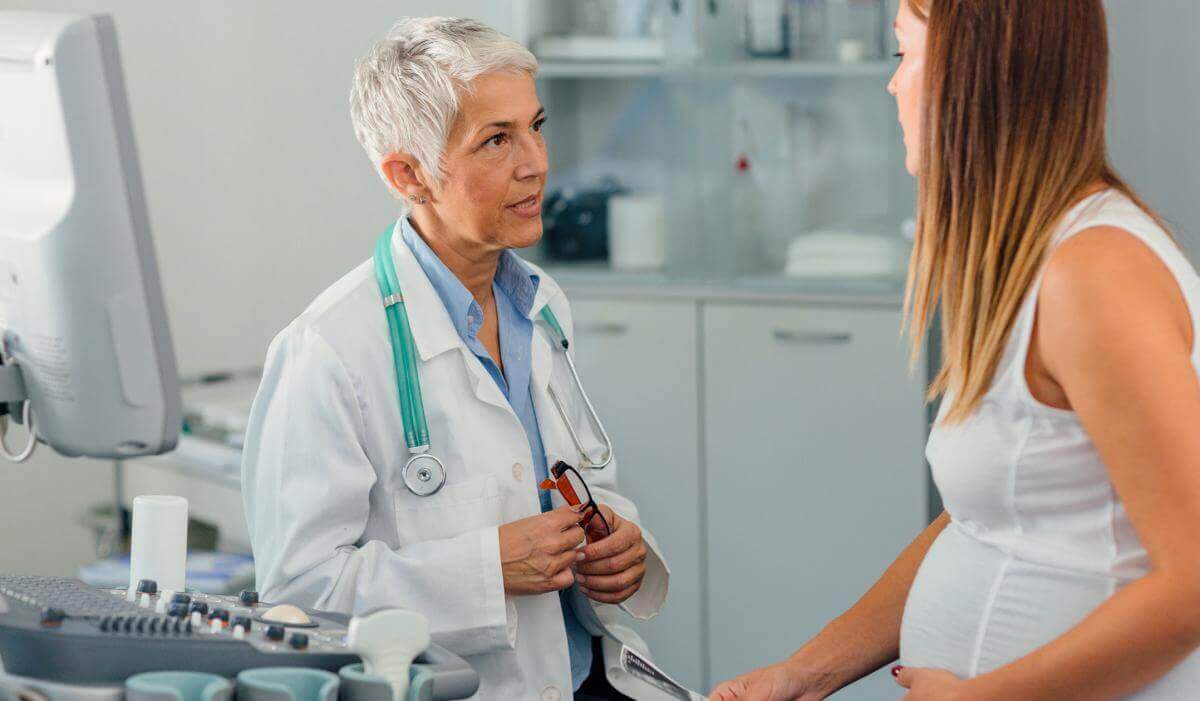
Sexually transmitted infections (STIs) are also called sexually transmitted diseases, or STDs. STIs include chlamydia, gonorrhea, trichomoniasis, genital herpes, genital warts, HIV, and syphilis. Some STIs can pass from mother to baby during pregnancy and through breastfeeding.
How do STIs affect pregnant women?
STIs can cause many of the same health problems in pregnant women as in women who are not pregnant. But having an STI also can hurt the unborn baby's health.
Having an STI during pregnancy can cause:
Can I pass an STI to my baby?
Yes. Some STIs can be passed from a pregnant woman to the baby before and during the baby's birth.
- Some STIs, such as syphilis, cross the placenta and infect the baby in the womb.
- Other STIs, like gonorrhea, chlamydia, hepatitis B, and genital herpes, can pass from the mother to the baby as the baby passes through the birth canal.
- HIV can cross the placenta during pregnancy and infect the baby during delivery.
What are the harmful effects of passing an STI to a baby?
The harmful effects to babies may include:
- Low birth weight (less than 5 pounds)
- Eye infection
- Pneumonia
- Infection in the baby's blood
- Brain damage
- Lack of coordination in body movements
- Blindness
- Deafness
- Acute hepatitis
- Meningitis
- Chronic liver disease, which can lead to scarring of the liver (cirrhosis)
- Stillbirth
I'm pregnant. What can I do to prevent problems from STIs?
You can prevent some of the health problems caused by STIs and pregnancy with regular prenatal care. Your doctor will test you for STIs early in your pregnancy and again closer to childbirth, if needed.
- STIs caused by bacteria, such as chlamydia and gonorrhea, can be cured with antibiotics. Some antibiotics are safe to take during pregnancy. Your doctor can prescribe antibiotics for chlamydia, gonorrhea, syphilis, and trichomoniasis during pregnancy.
- STIs caused by viruses, such as genital herpes and HIV, have no cure.
- If you have herpes, antiviral medicine may help reduce symptoms. If you have symptoms of herpes or active genital herpes sores at the start of labor, you may need a cesarean section (C-section). This can help lower the risk of passing the infection to your baby.
- If you have HIV, antiviral medicines can lower the risk of giving HIV to your baby to less than 1%.2 You also may need to have a C-section.
You also can take steps to lower your risk of getting an STI during pregnancy.
Can I breastfeed if I have an STI?
Maybe. Some STIs affect breastfeeding, and some don't. The following are some general guidelines, but talk to your doctor, nurse, or a lactation consultant about the risk of passing the STI to your baby while breastfeeding:
- If you have HIV, do not breastfeed. You can pass the virus to your baby. In countries like the United States where clean water is available, using a breastmilk substitute like formula is recommended.
- If you have chlamydia, gonorrhea, or HPV, you can breastfeed your baby.
- If you have trichomoniasis, you can take the antibiotic metronidazole if you are breastfeeding. You may need to wait 12 to 24 hours after taking the medicine to breastfeed.
- If you have syphilis or herpes, you can breastfeed as long as your baby or pumping equipment does not touch a sore. It is possible to spread syphilis or herpes to any part of your breast, including your nipple and areola. If you have sores on your breast, pump or hand-express your milk until the sores heal. Pumping will help keep up your milk supply and prevent your breast from getting overly full and painful. You can store your milk to give to your baby in a bottle for another feeding. But if parts of your breast pump also touch the sore(s) while pumping, you should throw the milk away.
Are STI treatments safe to use while breastfeeding?
If you are being treated for an STI, ask your doctor about the possible effects of the medicine on your breastfeeding baby. Most treatments for STIs are safe to take while breastfeeding.
Did we answer your question about STIs, pregnancy, and breastfeeding?
For more information about STIs, pregnancy, and breastfeeding, call the OWH Helpline at 1-800-994-9662 or contact the following organizations:
- Food and Drug Administration (FDA), HHS
Phone Number: 888-463-6332 - National Center for HIV/AIDS, Viral Hepatitis, STD, and TB Prevention (NCHHSTP), CDC, HHS
Phone Number: 800-232-4636 - National Institute of Allergy and Infectious Diseases (NIAID), NIH, HHS
Phone Number: 866-284-4107 (TDD: 800-877-8339) - American Sexual Health Association
Phone Number: 800-227-8922
Sources
- Centers for Disease Control and Prevention. (2015). Preterm Birth.
- Centers for Disease Control and Prevention. (2015). HIV Among Pregnant Women, Infants, and Children.

